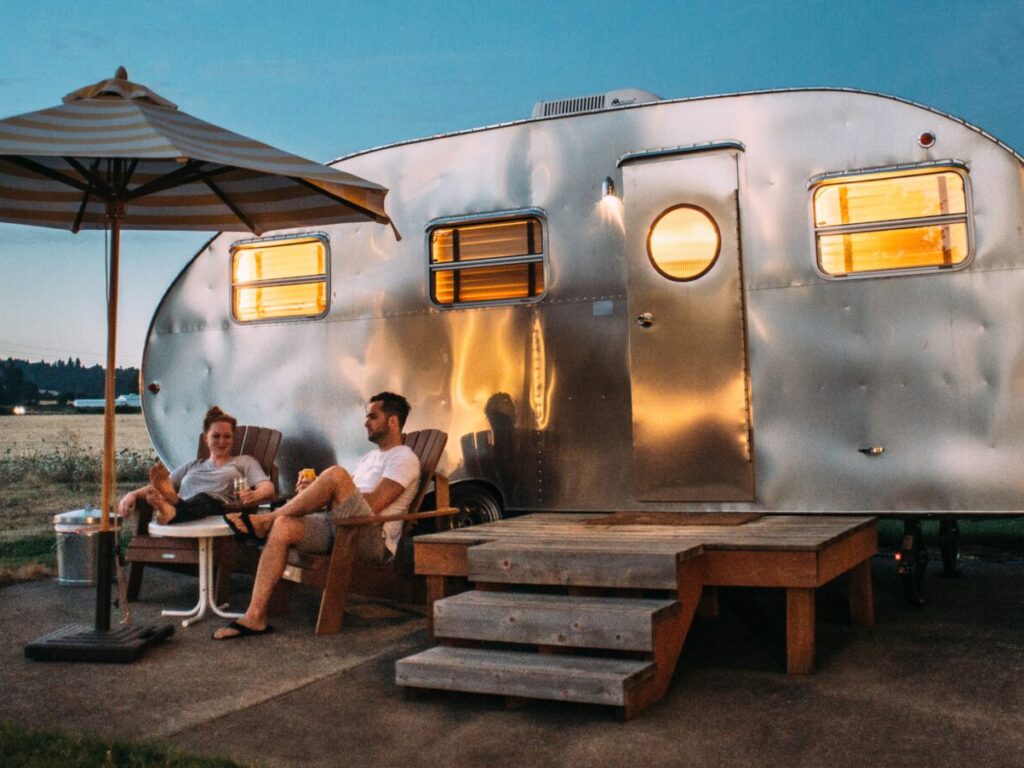National unplug day
The national day of unplugging falls on the first Friday of March each year. Embrace national unplug day with help from our guide on how to be screen free for 24 hours.
The idea is that from sundown on Friday to sundown on Saturday, people try to go completely screen-free. It is a simple idea, but may be a lot more difficult than you’d expect, as we now rely on technology in almost all aspects of our lives!
If you find that parts of the experience are beneficial for you and your family, this blog will suggest ways to reduce technology usage in everyday life.
If you’d like to try out unplugging for more than just one day, then a camping holiday in the great outdoors is another great excuse to try and go screen free.

Why unplug?
It’s hard to argue that we aren’t all addicted to technology to a certain extent. We use tech to work, find recipes, listen to music, connect with friends and a lot more. Although these things aren’t necessarily all bad, it can be interesting to remember that there are also ways of going about our lives without technology. And although tech isn’t always damaging, it has been proven that spending less time on screens improves your sleep, lets you spend more time with friends and family as well as giving you more time for the things you love. Having fewer distractions from a phone/ computer also helps you to be more productive.

Going tech free at home
There are lots of little things you can do to make going completely tech free a bit easier. Why not consider what you want to cook before the day itself, and print recipes out beforehand, or you could just look in cookery books.
Likewise, if you are going on an unfamiliar car journey then you could print out or buy a map, instead of using a phone or satnav.
If you turn off notifications, then it will be a lot harder to get distracted by your phone. The pinging sound makes you think you’re missing out on something, and even a phone that vibrates can persuade you that something more important than what you’re doing needs your attention – so make sure everything is set to silent!
Now you can focus on what you’re doing in the moment and (if you’re not going completely screen free) you can actively check your phone once you’re done.
When do you find yourself checking your phone.

Replacing your phone
Instead of using your phone as an alarm, use an alarm clock to wake yourself up in the mornings.
Using your phone first thing in the morning, even for an alarm, makes it so much easier to check social media, worry about emails or scroll as your first activity of the day.

Why not try to encourage your children to replace video games with meeting up with friends in person – it’s only for one day after all! And if you have younger kids, then you could organise a playdate with their friends after school so they can connect with friends without using tech.
Just for this day, try shopping in person rather than online.
Technology does make shopping a lot more convenient, but if you have the time in your day to actually go to the shops then why not try it out- you won’t have to pay for shipping and will also get some time outside! Another advantage of this is that you can go to markets or take your own bags to reduce the amount of packaging or plastic used, and support local shops.
Instead of listening to music on your phone, listen on the radio or even a record/CD player if you have one.
Use paper instead of your phone, for to-do lists, shopping lists and a calendar.
You could get stuck in a good book, which is a great way to replace the escapism of scrolling on your phone in a way that uses more imagination.

Reducing usage
Although all the tips above are useful if you’re trying to do a screen-free day, there are also loads of ways you can use tech less, or in a healthier way. For instance, try to avoid using any screens at least an hour before bed as the white light can keep you awake.
Similarly, don’t check your phone immediately when you wake up, instead give yourself some time to wake up before overwhelming yourself with information.

You could have a rule in your family that there no one can use their phone when you’re out at a restaurant or while you’re all eating together to encourage conversation with each other instead.
Although not exactly screen-free, in our household we have a ‘one screen’ rule when we’re watching telly together – so you can’t go on your phone at the same time. This makes watching TV together so much more communal and fun.
Why not introduce no tech zones, such as your bedroom, so that it can be a place of relaxation rather than one of scrolling and work.
Or you could ban using your phone at your desk to aid productivity. Something that helps a lot is to keep phones in another room when you’re working or relaxing with friends and family. Out of sight, out of mind!
A tech free holiday?
Camping is the perfect time for a tech free holiday. As you’re spending so much time outdoors it is easier to leave phones in the car or the tent and replace spending time on screens with other activities.
Why not see if you can get the whole family involved. You may find that everyone enjoys the trip more, finding it easier to relax and be present.

Why not pick a campsite with no wifi to make going tech free a bit easier, this also has an added bonus as it means you won’t have to nag people to get off their phones.
Leave tech that you don’t really need at home, like the laptop and ipad. Camping isn’t the place to be checking emails!
Although, this may not work for your teenagers. Check out my tips for surviving a camping trip with teenagers, and hopefully encouraging them to enjoy camping as much as you do!
Instead of using tech, plan loads of outdoor activities that the whole family will enjoy. You could go on hikes, find swimming spots you can walk or drive to, head out on a bike ride or learn how to identify wildlife in the UK countryside.
For tips on how to do this check out Tree identification – Bark and leaves uk trees and Wildlife guide to the Woodland Animals of the UK.
You can also play games with the whole family to replace screen-time.
Pack cards, and all your favourite boardgames.
Also bring penknives, sketchbooks, colouring books, art supplies and a favourite book for each child so that they have something to entertain themselves with if they get bored.
If you’re still struggling to keep kids off their phones, check out Entertaining the Children during your Camping Adventure.

If you’re camping with older kids or teens, then why not consider camping with another family, or letting them bring a friend or two along. When teens are camping with family, away from their social life, phones become a vital tool to connect with friends and not feel too isolated. But if they have friends with them, you’ll find that teens are a lot more engaged with the whole camping experience, as they have someone their age to enjoy it with.
Camping with other kids often also means they can play big group games together, which is also such good fun and also means you don’t have to do so much organising.
Hopefully you’ll feel inspired to give national unplug day a go, or to go screen free on your next camping holiday. At the very least I hope that some of the tips will help you to reduce time spent on screens for the whole family.
Here’s me signing out and thank you so much for reading.
Lily Crooke / Environmental and Recreational author
